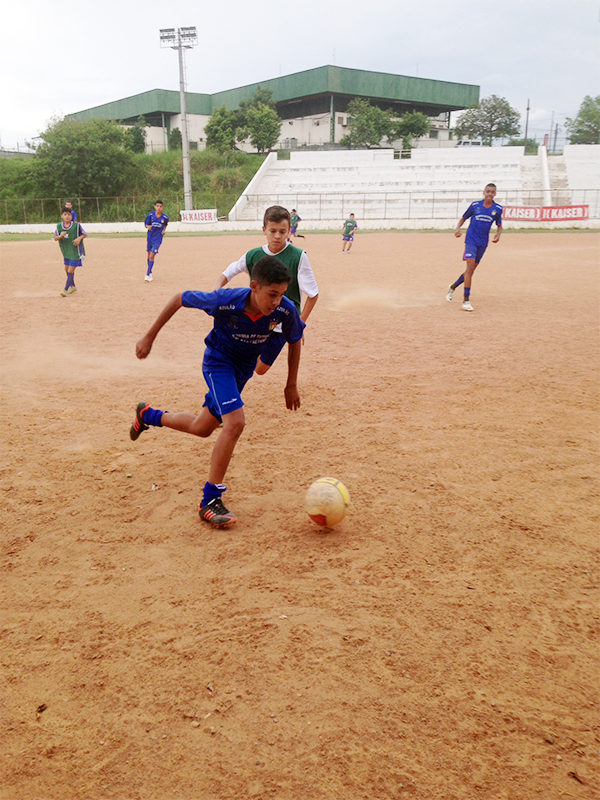Prior to the 2010 FIFA World Cup in South Africa, we had the great idea of using the upcoming games as an opportunity for sports-loving countries like Brazil to develop outreaches based around the World Cup. We know this type of program has been effective in other parts of the world, and imagined the same would hold true, especially when the announcement was made that Brazil would be hosting the 2014 tournament!  When we suggested the idea to our partners in Brazil, they instantly declined our idea. In our American mindset, it made so much sense! The World Cup—a global sporting event where everyone will be watching excitedly, whether they are in the country or glued to their TV. Let’s leverage it, package it, and develop a sports-themed outreach to share the Gospel around this big event! We tried to share our logic, but once again they gracefully took a pass. Although it didn’t make any sense to us to “miss out on the opportunity,” we trusted our expert in the field. Literally. Hindsight from this interaction and countless others from around the world has helped us realize the critical importance of working with and through trusted local leaders instead of imposing our “good” ideas on their culture. Part of what we do is come along and help in the process, but much of what we do is finding those people who can intuitively design culturally relevant, contextualized programs that maximize impact. They are the ones who have the pulse of their communities so many layers deeper than we do. Even armed with great research and answers pages long from local focus groups, we can never understand the context without out the nascent insight that comes with being indigenous. To finish the World Cup outreach story, here are a few details we didn’t know back in 2010:
When we suggested the idea to our partners in Brazil, they instantly declined our idea. In our American mindset, it made so much sense! The World Cup—a global sporting event where everyone will be watching excitedly, whether they are in the country or glued to their TV. Let’s leverage it, package it, and develop a sports-themed outreach to share the Gospel around this big event! We tried to share our logic, but once again they gracefully took a pass. Although it didn’t make any sense to us to “miss out on the opportunity,” we trusted our expert in the field. Literally. Hindsight from this interaction and countless others from around the world has helped us realize the critical importance of working with and through trusted local leaders instead of imposing our “good” ideas on their culture. Part of what we do is come along and help in the process, but much of what we do is finding those people who can intuitively design culturally relevant, contextualized programs that maximize impact. They are the ones who have the pulse of their communities so many layers deeper than we do. Even armed with great research and answers pages long from local focus groups, we can never understand the context without out the nascent insight that comes with being indigenous. To finish the World Cup outreach story, here are a few details we didn’t know back in 2010:
- Partnerships with other organizations at the time were simply in the handshake stages, rather than in a place of alignment and a spirit of collaboration as they are today.
- Our local director was already in the process of going much deeper than the isolated event we were suggesting. He knew what we didn’t—that as soon as Brazil lost in the 2010 World Cup tournament, locals would shut down and want nothing more to do with the games, which would have counteracted local church efforts for World Cup-centric evangelism and outreaches.
- Since 2010, he has been putting together a team and a strategic game plan that aligns with the long-term outcomes they hope to see the Church accomplish in their culture, while at the same time taking into account but also transcending the singular instance of the World Cup.
We can clearly see the wisdom and leadership that his decision—which didn’t make any logical sense at the time—has had on the long-term planning of the country hosting the 2014 World Cup. Our director understands what we don’t—the feelings the Brazilian people have toward the intricate workings of the Brazilian government, the FIFA board, and how it ties into their wallets and lives. Thank God for the wisdom of great local partners and leaders. Our Regional Director for Brazil shared an update via Skype yesterday. He and his family live and minister in Brazil. Knowing the World Cup was coming, they have been praying and planning and training and developing systems to address the heartfelt needs of Brazilians as identified back in 2010. His insight, foresight and tireless planning for something so much bigger than just a one-time soccer tournament humbled me. Reminding me that God has blessed us with fearless, tireless, committed laborers whose geographical favor and positioning to help spread the Gospel will help bring OneHope’s mission of God’s Word for Every Child to fruitfulness. While Brazil has been sinking millions of dollars into new stadiums that will only be used a handful of times, our leadership team has been sinking thousands of hours in prayer and training into churches and people and partnerships that will carry the Good News of Christ deep into the hearts of the Brazilian people and far into the future for their country. The World Cup will come and go. It may never return to Brazil. But God’s Word has come to Brazil. And with the systems and people our local partners and leadership team have been systematically architecting, it’s going to stay and make a lasting difference in this country.
For further reading:



